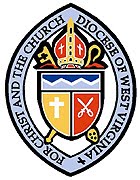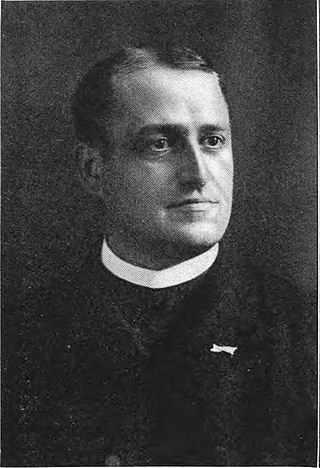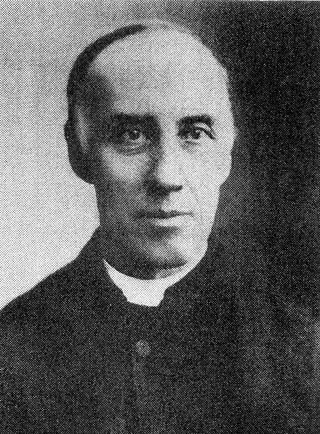
The Ainu are an indigenous ethnic group who reside in northern Japan and southeastern Russia, including Hokkaido and the Tōhoku region of Honshu, as well as the land surrounding the Sea of Okhotsk, such as Sakhalin, the Kuril Islands, the Kamchatka Peninsula, and the Khabarovsk Krai. They have occupied these areas, known to them as "Ainu Mosir", since before the arrival of the modern Yamato and Russians. These regions are often referred to as Ezochi (蝦夷地) and its inhabitants as Emishi (蝦夷) in historical Japanese texts. Along with the Yamato and Ryukyu ethnic groups, the Ainu people are one of the primary historic ethnic groups of Japan.

Korpokkur, also written Koro-pok-kuru, korobokkuru, korbokkur, or koropokkur, koro-pok-guru, are a race of small people in folklore of the Ainu people of the northern Japanese islands. The name is traditionally analysed as a tripartite compound of kor, pok, and kur ("person") and interpreted to mean "people below the leaves of the Fuki" in the Ainu language.

The Nippon Sei Ko Kai, abbreviated as NSKK, sometimes referred to in English as the Anglican Episcopal Church in Japan, is the national Christian church representing the Province of Japan within the Anglican Communion.

Ezo (蝦夷) is the Japanese term historically used to refer to the people and the lands to the northeast of the Japanese island of Honshu. This included the northern Japanese island of Hokkaido, which changed its name from "Ezo" to "Hokkaidō" in 1869, and sometimes included Sakhalin and the Kuril Islands. The word Ezo means "the land of the barbarians" in Japanese.

Ainu, or more precisely Hokkaido Ainu, is a language spoken by a few elderly members of the Ainu people on the northern Japanese island of Hokkaido. It is a member of the Ainu language family, itself considered a language family isolate with no academic consensus of origin. It is classified as Critically Endangered by the UNESCO Atlas of the World's Languages in Danger.
The Church Mission Society (CMS), formerly known as the Church Missionary Society, is a British Anglican mission society working with Christians around the world. Founded in 1799, CMS has attracted over nine thousand men and women to serve as mission partners during its 200-year history. The society has also given its name "CMS" to a number of daughter organisations around the world, including Australia and New Zealand, which have now become independent.

The Episcopal Diocese of West Virginia is a diocese of the Episcopal Church in the United States of America (TEC). It encompasses all 55 counties of West Virginia. The diocese has 66 congregations, including 38 parishes, 26 missions, and 2 other churches. The diocese is headquartered in Charleston and led by The Rt. Rev. Matthew Davis Cowden who was consecrated as bishop coadjutor in March, 2022 and became bishop diocesan in October, 2022.

Imekanu, also known by her Japanese name Kannari Matsu, was an Ainu missionary and epic poet. Along with her niece, Yukie Chiri, she wrote down and preserved numerous Ainu yukar she learned from her mother.
The Diocese of North America & Europe is a diocese of the Malankara Mar Thoma Syrian Church that includes all the parishes in the North American and European continents. Its headquarters is at Sinai Mar Thoma Centre, Merrick, New York.The present Diocesan bishop is Issac Mar Philoxenos Episcopa. As of 2020 there are 71 parishes and 7 congregations under this diocese.
Protestants in Japan constitute a religious minority of about 0.45% of total population or 600,000 people in 2020.

Channing Moore Williams was an Episcopal Church missionary, later bishop, in China and Japan. Williams was a leading figure in the establishment of the Anglican Church in Japan. His commemoration in some Anglican liturgical calendars is on 2 December.

Sidney Catlin Partridge was the first Bishop of Kyoto (1900–1911) and the second Bishop of the Episcopal Diocese of West Missouri (1911–1930).

Archdeacon John Batchelor, D.D., OBE was an Anglican English missionary to the Ainu people of Japan until 1941. First sent under the auspices of the Church Missionary Society of the Church of England, Batchelor lived from 1877 to 1941 among the indigenous Ainu communities in the northern Japanese island of Hokkaido. He was a charismatic and iconoclastic missionary for the Anglican Church in Japan and published highly regarded work on the language and culture of the Ainu people. Batchelor only reluctantly left Japan at the outbreak of the Second World War in the Pacific in 1941.

This is a bibliography of works on the Ainu people of modern Japan and the Russian Far East.

Elmley Lovett in Worcestershire, England is a civil parish whose residents' homes are quite loosely clustered east of its Hartlebury Trading Estate, as well as in minor neighbourhood Cutnall Green to the near south-east. The latter is a loosely linear settlement that includes a pub-restaurant and farm shop on the Elmley Lovett side of the boundaries; it continues passing its near-square public green into the parish of Elmbridge, a similarly sized parish over to the east.

Alexander Croft Shaw M.A. was a minister of the Anglican Church of Canada. He is remembered as Archdeacon Shaw, minister to the British Legation in Tokyo and a leading figure in the early years of the Anglican Church in Japan.

Bishop Moore Vidyapith, Cherthala is a CBSE school run by the Church of South India (CSI) Diocese of Madhya Kerala, established in 2001. The school has a student strength of over 2000 pupils and about 100 staff.

The Ainu languages, sometimes known as Ainuic, are a small language family, often regarded as a language isolate, historically spoken by the Ainu people of northern Japan and neighboring islands, as well as mainland, including previously southern part of Kamchatka Peninsula.

St. Matthew's Cathedral, located in Showa-ku, Aichi, Japan, is the diocesan cathedral of the Diocese of Chubu of the Anglican Church in Japan, covering the parishes in the four prefectures of the Chubu Region : Aichi, Gifu, Nagano, and Niigata.















